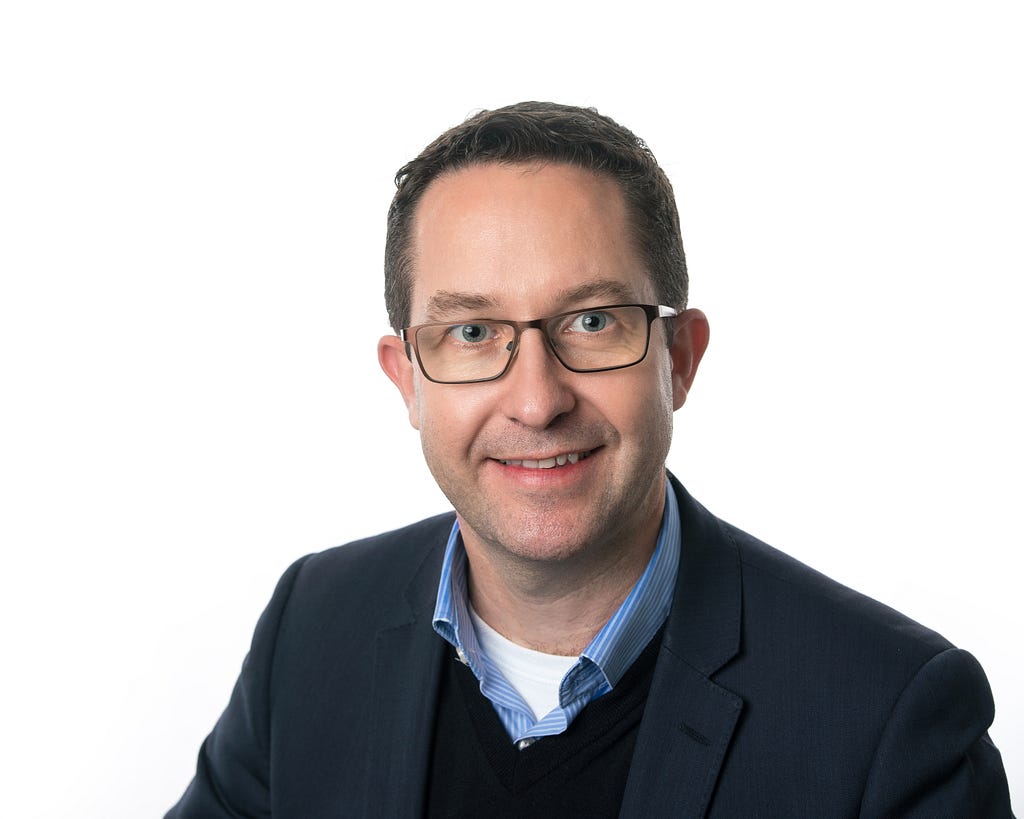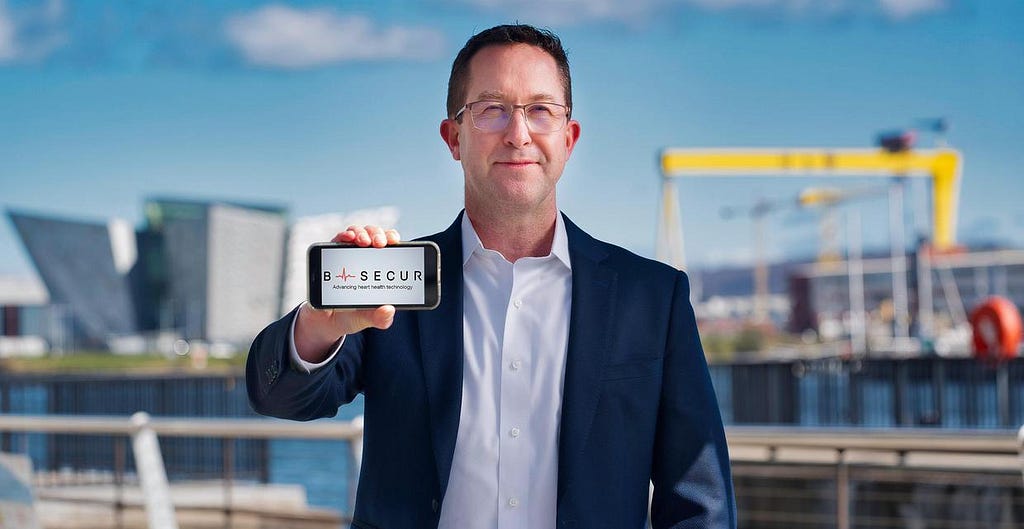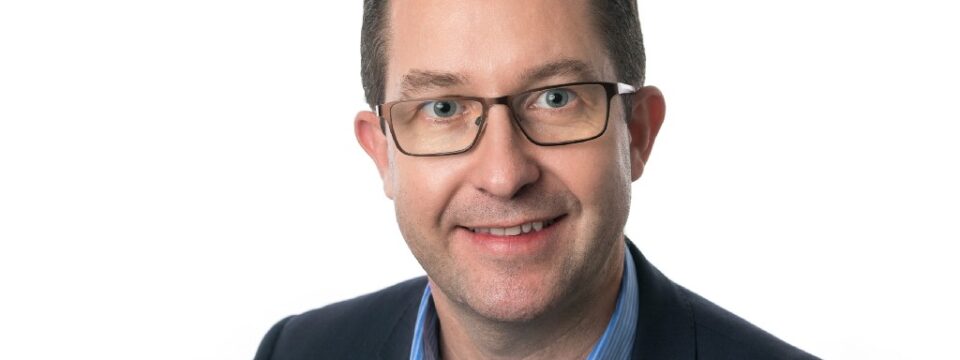Health Tech: Alan Foreman On How B-Secur’s Technology Can Make An Important Impact On Our Overall Wellness

Tell your Story: The CEOs and businesses that I admire the most, and are possibly the most successful, are those that can tell the story simply and beautifully. This isn’t a common skill for technologists so spend time practicing this
In recent years, Big Tech has gotten a bad rep. But of course, many tech companies are doing important work making monumental positive changes to society, health, and the environment. To highlight these, we started a new interview series about “Technology Making an Important Positive Social Impact”. We are interviewing leaders of tech companies who are creating or have created a tech product that is helping to make a positive change in people’s lives or the environment. As a part of this series, I had the pleasure of interviewing Alan Foreman, CEO of B-Secur.
Alan is a visionary tech entrepreneur who has built a highly successful career in the healthcare technology industry working with the world’s leading healthcare and technology providers. As co-founder and CEO of global heart health technology company, B-Secur, Alan is responsible for company strategy, building a world-class team, and driving partnerships and commercial success. Alan leads more than 75 experts at B-Secur including world-class scientists, leading engineers, and experienced commercial executives at offices across the U.S., the UK and Ireland, with expanding customer bases in Europe, the Americas and Asia.
Thank you so much for joining us in this interview series. Before we dive in, our readers would love to learn a bit more about you. Can you tell us a bit about your childhood backstory and how you grew up?
I grew up in the Northern Ireland countryside with my parents and an older sister. Northern Ireland was always an interesting place especially in the seventies with an active civil war. Despite those challenges, I had a great upbringing in a fairly small-town environment. My Father’s job required him to travel quite frequently and that exposed me to the “American Dream” which I later followed by living in the U.S. for a short spell.
Can you share the most interesting story that happened to you since you began your career?
Prior to my role as CEO of B-Secur, I spent 19 years at the global management consulting firm Accenture. I was the Managing Partner for the life science business and that’s where my passion for new technology innovation really kicked in. While I had many memories from that career, the one that sticks is the day after 9/11 where I was asked to solve a global communications continuity problem for a multinational life sciences company. The communications chain was severely impacted due to the tragic events of 9/11 and a life-changing drug development was at stake. I was tasked with solving the problem with the technology available — and I did it. I came away from this experience believing anything was possible with the use of technology, and I still hold that belief today.
None of us are able to achieve success without some help along the way. Is there a particular person who you are grateful towards who helped get you to where you are? Can you share a story about that?
One story that springs to mind is from a previous boss at Accenture who always told me to be “relentlessly constructive.” It is a mentality that I apply to everything I do at work, at home, at play. I think this has gotten me through many tough times and is a good lesson in looking at situations with a glass half full mindset.

Can you please give us your favorite “Life Lesson Quote”? Can you share how that was relevant to you in your life?
Very simple but “better to be liked than right” is my favorite. I interpret that as working and connecting with folks whom you like, who are fun, have a positive outlook in life. I believe that takes you far both personally and professionally.
You are a successful business leader. Which three-character traits do you think were most instrumental to your success? Can you please share a story or example for each?
- Tenacity — always go beyond the norm, otherwise don’t expect the extraordinary.
- Positivity — I have a choice each morning which side of the bed I get out of.
- Integrity — I want people to want to work with me, and a big part of this is trust in work and life.
Let’s now shift to the main part of our discussion about the tech tools that you are helping to create that can make a positive impact on our wellness. To begin, which particular problems are you aiming to solve?
Cardiovascular disease (CVD) is the leading cause of death worldwide — but it doesn’t have to be. According to the American Heart Association, 80% of cardiovascular disease — including heart disease and stroke — are avoidable. To make matters worse, the pandemic has had serious implications on heart health as well, with data finding 25% of people who have recovered from COVID are now showing indications of arrhythmia.
Technology has the potential to reverse the trend of the rising number of deaths due to CVD. Too often, patients are either unaware of their heart health risks or genetic predispositions, or don’t understand what early signs of heart disease look like before it’s too late. Thanks to the pandemic, more consumers are aware of their overall health. We’re also seeing that medical and consumer wearables are becoming increasingly popular as the population becomes more interested in managing their health symptoms remotely. I think technology has the potential to help reduce the number of deaths and negative patient outcomes caused by CVD by making it easier for consumers to catch and monitor symptoms earlier. In turn, this also enables them to have more productive conversations with their physicians and cardiologists about symptoms they are experiencing, and health data wearables are showing them.
How do you think your technology can address this?
At B-Secur, we develop heart health algorithms and analysis solutions that bring greater clarity to EKG interpretation. Our technology enables EKG readings everywhere across the consumer wearable and medical industries, making it easier for patients to prevent CVD. We’ve partnered with world-leading technology companies who use our algorithms and software to help reduce their time to market for next generation wearable devices. Arrhythmias can often be challenging to detect, but B-Secur’s cloud software and algorithms are able to detect them more accurately and alert patients and their physicians to them before they become a larger health concern.
We recently launched our HeartKey® 2.0 technology, a software that reduces EKG signal noise and makes it easier for clinicians to interpret EKG more efficiently and accurately. This software can be integrated into wearable and implantable devices, making it easier for clinicians to make more accurate diagnoses and ultimately save lives.
Can you tell us the backstory about what inspired you to originally feel passionate about this cause?
My inspiration for founding a heart health technology company came from recognizing its potential to improve, or in some cases, save the lives of thousands of people across the world.
How do you think this might change the world?
Heart health is one of the biggest challenges and health issues we face worldwide. Our technology has the potential to be integrated into a wide range of devices and platforms, and ultimately transform how consumers and clinicians monitor heart health.
Although heart disease is the leading cause of death, many physicians are still relying on dated technology and can be hesitant to adopt new ways of testing and monitoring for heart disease. Many arrhythmias are transient and are difficult to detect or catch, and 33 million people experience atrial fibrillation worldwide. Our FDA-cleared health algorithms can help patients detect and manage arrhythmias outside of the traditional hospital environment and take steps to alert their physicians and schedule appointments to discuss symptoms and their health. By integrating our technology into wearables, B-Secur has the potential to help alert patients of their symptoms in real-time and help clinicians make more accurate clinical decisions when they have larger amounts of patient data.
Keeping “Black Mirror” and the “Law of Unintended Consequences” in mind, can you see any potential drawbacks about this technology that people should think more deeply about?
When wearables were first introduced, there were a lot of misunderstandings about readings and data it provided. When this technology was still in its infancy, this caused many patients to believe they had an arrhythmia when in reality they did not, and lack of physician oversight made it difficult to interpret information that wearables could share. Although technology has evolved, to avoid falling into this trap, patients should also have open conversations with their physicians to ensure they have a solid care plan in place when using wearable devices. Patients need to be empowered with understanding what warning signals and data to look for when utilizing wearables, and when is appropriate to reach out to their physician based on what the data is telling them.
Here is the main question for our discussion. Based on your experience and success, can you please share “Five things you need to know to successfully create technology that can make a positive social impact”? (Please share a story or an example, for each.)
My view of five things you need to know:
- Technology: Technology innovations are announced each day and that means acticulating your technology’s differentiators is key
- Team: Technology can only go so far without the right team to help build, nurture, protect and commercialize the opportunity
- Turnover: No matter the stage of your invention/idea run it like a business with laser focus on financial or business outcomes
- Think Beyond Profit: While future profitability is important, what other non-financial outcomes will your technology achieve? e.g., improve people’s lives
- Tell your Story: The CEOs and businesses that I admire the most, and are possibly the most successful, are those that can tell the story simply and beautifully. This isn’t a common skill for technologists so spend time practicing this
If you could tell other young people one thing about why they should consider making a positive impact on our environment or society, like you, what would you tell them?
Making a positive societal impact is now commonplace — it’s just as important to a business as turning a profit. To make a larger impact successfully, identify the passion points of your employees and create structure around that passion.
Is there a person in the world, or in the US with whom you would like to have a private breakfast or lunch, and why? He or she might just see this, especially if we tag them. 🙂
I would like a private breakfast or lunch with President Joe Biden, or any of the previous U.S. Presidents, as they are the most powerful people in the largest economy in the world. I would love to discuss with them the global health emergency that is plaguing our society with CVD. We must get the attention and recognition to combat it before it takes more lives.
How can our readers further follow your work online?
You can find B-Secur’s blog here sharing updates on B-Secur’s company and product news, and insights on heart health trends.
Thank you so much for joining us. This was very inspirational, and we wish you continued success in your important work.
Health Tech: Alan Foreman On How B-Secur’s Technology Can Make An Important Impact On Our Overall… was originally published in Authority Magazine on Medium, where people are continuing the conversation by highlighting and responding to this story.
